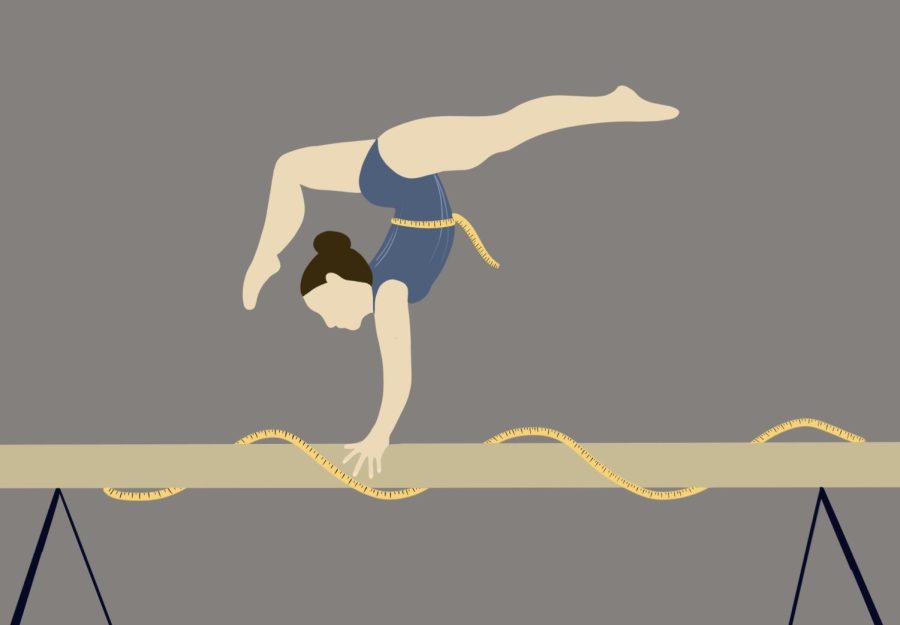Athletes are more than their bodies
November 8, 2022
Gymnastics is an easy sport to love. From the dazzling leotards to the risky routines, audiences are enthralled by the intensity of the sport. Due to the high demand and large audience, gymnasts are constantly being weighed down by the pressures of being the perfect performer. This perfect performer mindset pushes them to train harder and win more, resulting in callused hands and strained muscles. But what else does it cause?
According to a Sports Illustrated article, the NCAA reported that gymnasts show a significantly higher rate of disordered eating than any other athletes. Unfortunately, many young women struggle with disordered eating as it is — throw in rigorous training, and you have stumbled upon something dangerous. Disordered eating mixed with intense exercise can lead to a disruption in the menstrual cycle, leaving these female gymnasts with primary amenorrhea — a diagnosis made when a young female has failed to menstruate.
When the female body fails to menstruate due to disordered eating, osteopenia — a depletion of calcium in the bones — can take hold. The depletion of calcium in the bones leaves them vulnerable to more fractures as the bones brittle and weaken. Gymnastics is already a dangerous sport due to its high-risk movements. Gymnasts’ bones need to be as strong as possible to prevent injury, which could lead to the death of their athletic career.
As a result of stigma and a need to sacrifice, athletes often ignore their mental health challenges and instead favor hiding them. Mental health in athletes is ever-declining, and it is because those who organize the sport see mental health as a backburner problem. Partaking in any elite sport should mean prioritizing mental health. Gymnastics is a weight-sensitive sport because gymnasts must essentially defy gravity, which means that gymnasts are always hyper-aware of their ever-changing bodies. Putting forth too much attention on weight and body stature can evoke anxiety and lead to disordered eating. As discussed previously, disordered eating can disrupt the body and therefore disrupt the ability to advance in the gymnast’s chosen sport. It is a cycle that can be broken by becoming active in mental health awareness.
It is important for gymnasts to be surrounded by a sturdy support system that will constantly remind them that they are more than their body, more than a number on a scale. Spending more time focusing on an athlete’s mental state is far more necessary than focusing on their body because they will never truly perform their best while battling inner demons, regardless if they are in a weight-sensitive sport or not. Athletes deserve to be appreciated for their mental capabilities just as much as their physical abilities because it takes a powerful individual to be a healthy, successful athlete.
While I understand the importance of an athlete’s body, I will never be okay with the harmful environment that they are forced to endure because of it. No gymnast should ever feel the need to restrict their caloric intake just to land their dismount on the beam or get more height on their double Arabian on the floor. Stop treating athletes like trophies and start prioritizing their mental health.








